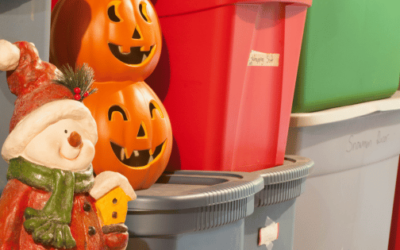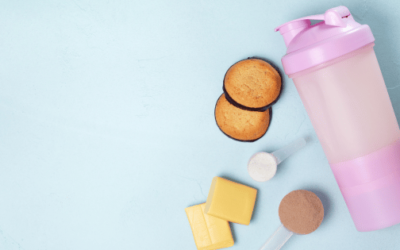Choosing the right bird food is crucial for keeping feathered friends happy and healthy. Whether you’re a seasoned bird enthusiast or a beginner, understanding what to feed your avian companions can make all the difference. From seed mixes to specialised pellets, the market offers a plethora of options that cater to different species and their unique dietary needs.
With so many choices available, it can be overwhelming to determine which bird food is best. This guide aims to simplify that decision by highlighting top-rated options that provide balanced nutrition and keep birds coming back for more. Discover the best bird food to ensure your garden or aviary is a haven for vibrant and thriving birds.
Top Amazon Sellers
Key Takeaways
- Importance of Choosing the Right Bird Food: Select high-quality bird food that provides balanced nutrition to keep birds healthy and encourage them to return to your garden or aviary.
- Varieties of Bird Food: Different types of bird food, such as peanuts, Nyjer seeds, sunflower hearts, whole sunflower seeds, wild bird seed mixes, mealworms, and fat balls, cater to specific bird species and their nutritional needs.
- Bird Food Selection Tips: Opt for bird food rich in protein, fats, and vitamins, avoiding those with artificial additives, fillers, or prone to spoilage. High-quality ingredients ensure better health and attraction of various bird species.
- Feeding Practices: Implement proper feeding practices by using squirrel-resistant feeders, keeping feeders clean, and providing fresh water to enhance birds’ health and safety.
- Season-Specific Feeding: Tailor bird food to seasonal needs, with high-energy options for autumn and winter, and varied, nutrient-rich options for spring and summer to support breeding and feather maintenance.
What Birds Can You Attract to Your Garden?
Birds can be enticed to gardens with targeted food offerings. Common visitors include robins, sparrows, and blue tits. Finches and blackbirds often show up too. Selecting the best bird food ensures diversity in species. Thrushes are drawn to fruits, while insect-based feeds attract woodpeckers. Suet pellets appeal to starlings and nuthatches. Peanut granules lure in great tits.
Certain seed mixes cater to specific birds. Nyjer seeds attract goldfinches and siskins. In contrast, sunflower hearts are favoured by a wider range like chaffinches and collared doves. Bird food wisely chosen creates a vibrant and lively garden space.
Types of Bird Food
Choosing the best bird food involves understanding various types available. Each category caters to specific nutritional needs and attracts different bird species.
Peanuts
Peanuts provide high-energy food ideal for blue tits, great tits, and nuthatches. They offer protein and essential fats. Only use unsalted, unroasted peanuts to avoid harm.
Nyjer Seeds
Nyjer seeds are small, oil-rich seeds loved by finches, particularly goldfinches. These seeds are excellent for providing essential oils and fats, promoting healthy feathers.
Sunflower Hearts
Sunflower hearts, without shells, are favoured by birds like robins and sparrows. They offer concentrated nutrition, including protein, and make feeding easy without leaving husks.
Whole Sunflower Seeds
Whole sunflower seeds appeal to a broader range of garden birds. Their hard shells attract species capable of cracking them open, such as finches and tits. They provide strong energy boosts.
Wild Bird Seed Mixes
Wild bird seed mixes provide a versatile feeding option. They often attract a variety of birds, from sparrows to finches, by combining multiple seed types, thus catering to different dietary needs.
Mealworms
Mealworms offer a high-protein food source, ideal for insect-eaters like robins and blackbirds. These worms support healthy growth and provide vital nutrients during breeding seasons.
Fat Balls
Fat balls present a rich source of fats and energy, especially beneficial during colder months. They attract starlings and tits. These balls often contain a mix of seeds bound in fat, offering comprehensive nutrition.
Choosing the Best Bird Food
Selecting the best bird food ensures proper nutrition and attracts various bird species to gardens and aviaries. Consider these factors to make informed decisions.
What To Look For
High-quality bird food should offer a balanced mix of essential nutrients. Seek food rich in protein, fats, and vitamins to support birds’ health. Ensure it features ingredients tailored to the dietary needs of specific bird species, such as seeds and fruits.
What To Avoid
Avoid food containing artificial additives, fillers, or low-nutrient ingredients. Steer clear of items prone to mould or spoilage, as these can harm birds. Check for mixed-in debris that could reduce the food’s nutritional value or pose a risk to birds.
Feeding Tips and Tricks
Proper feeding practices enhance the birds’ health. Use these tips to ensure optimal feeding conditions.
How to Stop Squirrels Eating Bird Food
Use squirrel-resistant feeders to deter squirrels. Attach baffles above and below feeders to block their access. Place feeders away from trees and structures they can climb.
Keeping Your Bird Feeders Clean
Regularly clean feeders to prevent disease. Use a mild disinfectant and rinse thoroughly. Ensure feeders are completely dry before refilling them with bird food.
Providing Water for Birds
Provide birds with fresh water daily. Use shallow dishes or bird baths, ensuring they are clean. Place water sources near bushes or trees for safety.
Seasonal Feeding Advice
Providing the right food for birds during different seasons is crucial to their well-being and survival. Seasonal variations require tailored nutrition to meet birds’ diverse needs.
Autumn and Winter
Autumn and winter demand high-energy bird food to help birds cope with colder temperatures. Best bird food includes suet, peanuts, and sunflower hearts. These options provide essential fats and oils, ensuring birds have the energy to stay warm and healthy.
Spring and Summer
Spring and summer call for a varied diet to support birds during breeding and moulting seasons. Best bird food includes mealworms, wild bird seed mixes, and fruit. Offering these foods helps birds find the necessary nutrients for reproduction and feather maintenance.
Conclusion and Top Picks
Selecting the right bird food is crucial for attracting and nourishing a diverse range of bird species. By choosing high-quality options that cater to specific dietary needs, enthusiasts can create a vibrant and welcoming environment for their feathered visitors.
Understanding the nutritional benefits of different bird foods and their appeal to various species can enhance the bird-watching experience. From high-energy peanuts to versatile seed mixes, the right choices make a significant difference.
Practical feeding tips and seasonal advice further ensure birds’ health and well-being. By following these guidelines, bird lovers can enjoy a lively and thriving garden or aviary all year round.
Frequently Asked Questions
What type of bird food attracts the most birds?
To attract a variety of birds, offer different types of bird food such as seed mixes, sunflower hearts, peanuts, and mealworms. Black-oil sunflower seeds are particularly effective in attracting a wide range of species.
What do birds most like to eat?
Birds eat a variety of foods, including seeds, fruits, insects, and nuts. During spring and summer, many songbirds primarily consume insects and spiders.
What is the best food for birds in the UK?
A mix of seeds, peanuts, suet, and mealworms is ideal. Fruits like apples and pears attract thrushes and blackbirds, while kitchen scraps such as cooked rice should be offered occasionally in small amounts.
Where do garden birds sleep at night?
Most garden birds take shelter high in trees or within cavities at night. They may also huddle together in tight spots during particularly cold nights to keep warm.
What is the best food to feed garden birds?
High-energy foods like sunflower hearts, peanuts, and suet are excellent choices. Mealworms and wild bird seed mixes provide variety and cater to different species’ dietary needs, ensuring a balanced nutrition.
How does the food type affect bird diversity in a garden?
Specific foods attract different bird species. For example, fruits attract thrushes, insect-based feeds lure woodpeckers, and suet pellets draw in starlings and nuthatches. This variety enhances species diversity in your garden.
Why is it important to choose high-quality bird food?
High-quality bird food offers a balanced mix of essential nutrients like protein, fats, and vitamins. Avoid foods with artificial additives and fillers, as well as those prone to mould, to ensure the health and safety of the birds.
What feeding tips can enhance birds’ health?
Use squirrel-resistant feeders and regularly clean feeders to prevent disease. Provide fresh water daily in clean, shallow dishes or bird baths positioned near bushes or trees for safety.
What seasonal feeding advice is available for birds?
During autumn and winter, offer high-energy foods such as suet and sunflower hearts to help birds cope with the cold. In spring and summer, provide a varied diet including mealworms and fruits to support birds during breeding and moulting seasons.












